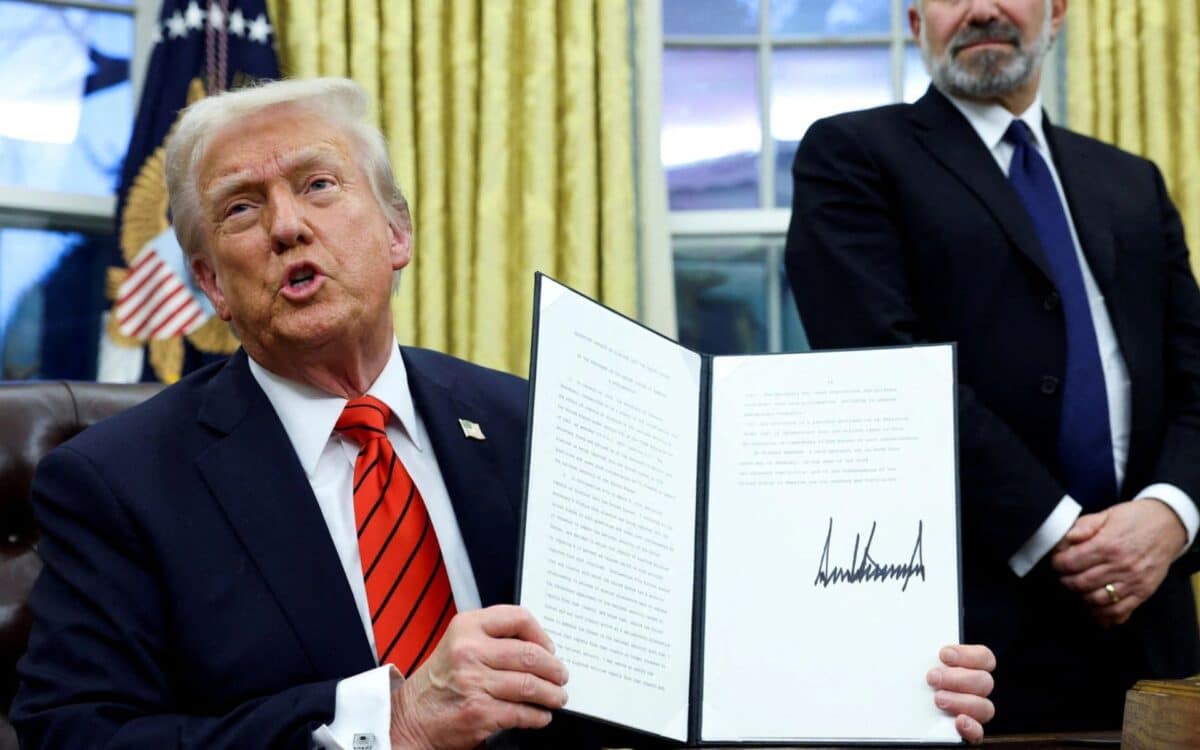The Trump administration is set to impose new tariffs on Australian agricultural exports, including beef and sheep meat, with rates possibly reaching 10%. This move follows a deadlock in trade discussions between the two nations, raising concerns over its economic impact.
Australian farmers, especially those in the agricultural sector, are bracing for significant challenges as these tariffs could disrupt a trade worth $7 billion annually.
According to The Sydney Morning Herald, the situation has added to tensions in the ongoing trade relationship between the US and Australia. These developments mark another chapter in the evolving trade saga.
Us Complaints Trigger Tariff Threats
The decision follows ongoing complaints from the United States over Australia’s pharmaceutical subsidies and biosecurity measures. US President Donald Trump has specifically pointed out that American exporters face barriers, such as stringent biosecurity checks, when attempting to send products like pork to Australia.
I think any country that has treated the American people unfairly should expect to receive a tariff in return on Wednesday,
Said White House Press Secretary Karoline Leavitt, signaling that tariffs could be imposed broadly.
Trump himself added, “You’d start with all countries,” referencing the potential scope of these tariffs.
Australia’s Stance on Biosecurity and Pharmaceutical Subsidies
In response to these demands, Australian Prime Minister Anthony Albanese has firmly rejected any compromises, stating,
Not on my watch – on my watch, our biosecurity system is essential.
This firm position was further supported by Opposition Leader Peter Dutton, who echoed Albanese’s sentiment, saying,
I agree with the prime minister’s position. I will stand up for our country’s interest.
The Australian government insists that relaxing biosecurity rules to accommodate American demands is not an option. Albanese remarked,
The idea that we would weaken biosecurity laws is, as my mum would say, cutting off your nose to spite your face.
Both Albanese and Dutton have strongly defended Australia’s biosecurity system, which they deem critical to protecting local agriculture and public health.
Potential Impact on Australian Farmers
Agricultural exports to the US are a vital part of Australia’s economy, with $7.1 billion worth of produce shipped to the United States in recent years.
The imposition of a 10% tariff could significantly increase the price of Australian goods in the US market, potentially costing Australian farmers more than $600 million. Beef exports to the US alone were valued at $3.3 billion, with sheep meat contributing $1.2 billion.
Trump previously warned US farmers :
Get ready to start making a lot of agricultural product to be sold INSIDE of the United States. Tariffs will go on external product on April 2nd.
These comments underline the administration’s plans to focus on domestic production over imports.
For now, both Albanese and Dutton have ruled out retaliatory tariffs, which could lead to higher costs for Australian consumers. Albanese also stated,
We would defend Australia’s interests,
Signaling that Australia will not back down on key issues. Furthermore, concerns about the economic impact of escalating tariffs are shared by Australia’s central bank.
A trade war with escalating tariffs and reciprocal tariffs is going to slow down growth in world trade
Said Reserve Bank Governor Michele Bullock.
And Australia, as a small, open economy, has benefited massively from open trade. So, it’s not good for us, a world trading system that is fragmenting. That’s not good for us.
While the Reserve Bank acknowledges that there will be some economic impact, Bullock emphasized,
There will be a bit of an impact on us in terms of growth, but it’s not going to be as big as some other countries might suffer.









